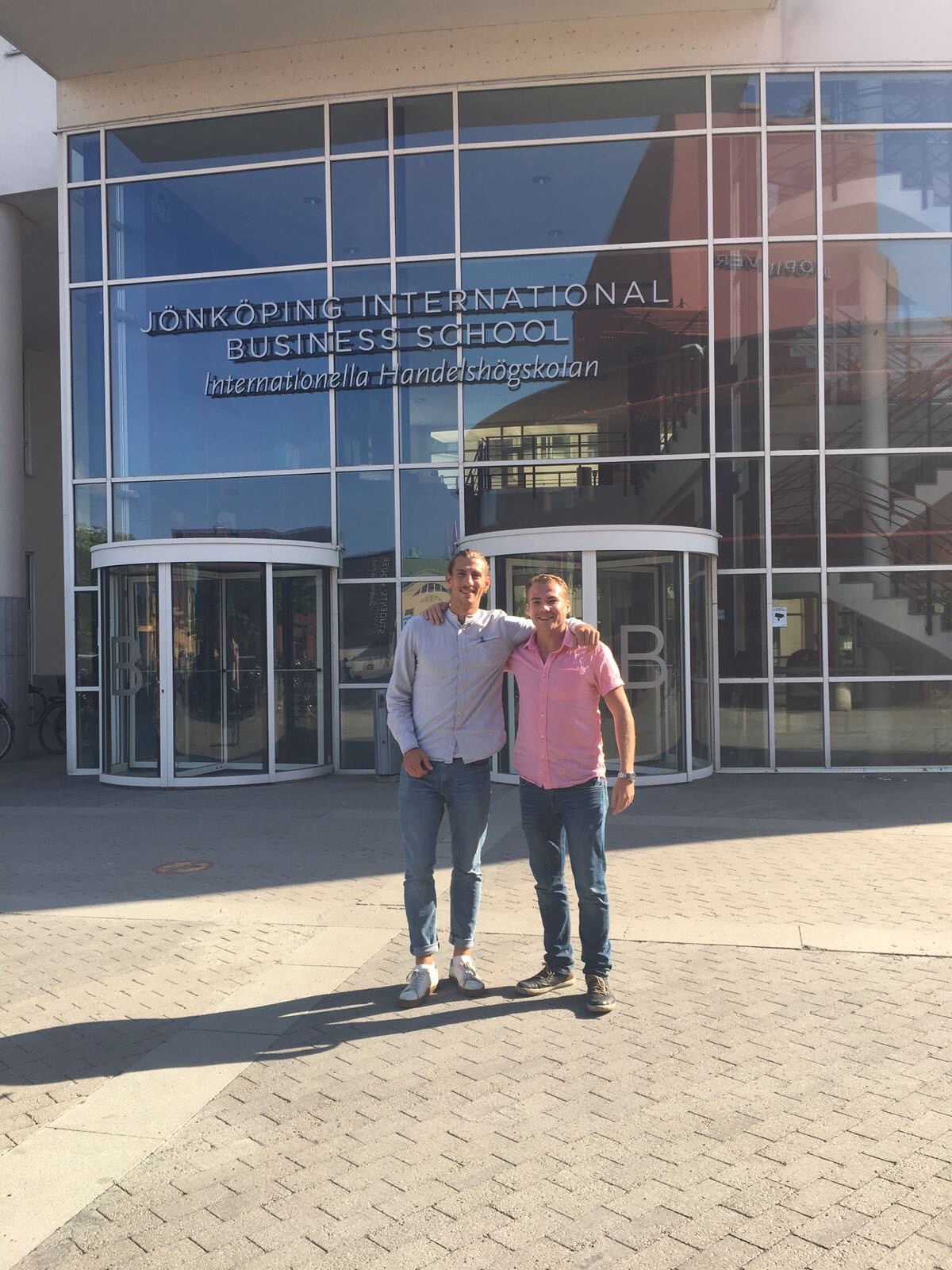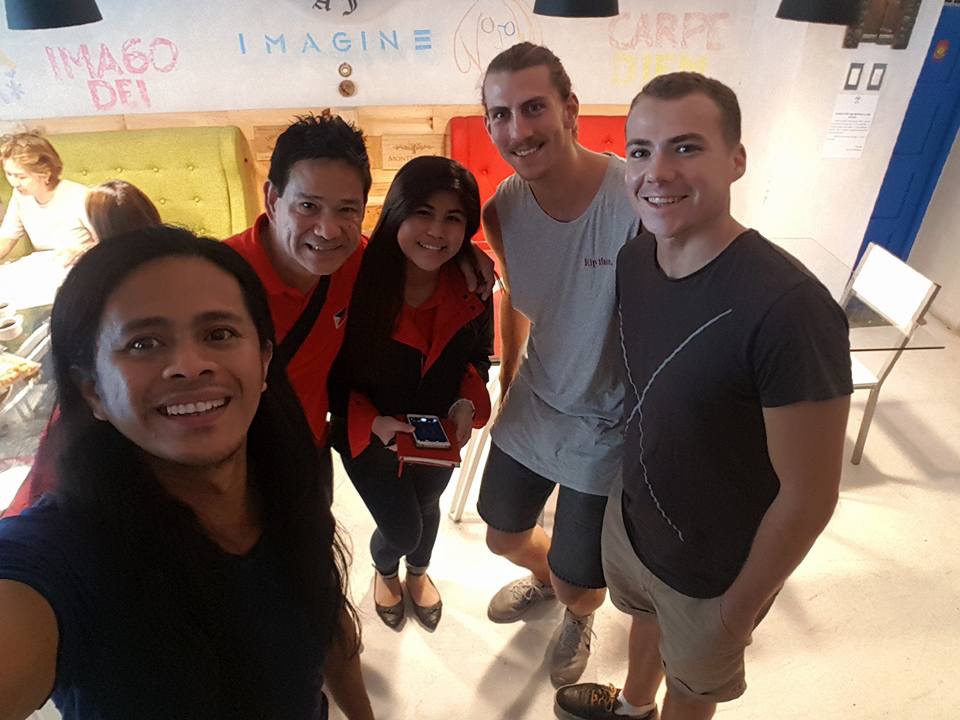Thesis winners gained a lot of experience in Manila
The 2018 MMTC Thesis Award winners spent two months in Manila during the work with their thesis, a period that gave them experiences and memories for life.
This week the Media, Management and Transformation Centre (MMTC) is announcing the JIBS/MMTC Thesis Award 2019. The number 1 winning thesis of 2018 was “The Manila Model: Exploring the Junction of Social Entrepreneurship and the Supporting Ecosystem A Study of New Generation Social Enterprises in the Philippines” by Axel Lundberg and Jonathan Lennström Nyström, who received SEK 15 000 for their work.
Axel Lundberg and Jonathan Lennström Nyström studied strategic entrepreneurship at JIBS when they wrote their thesis. Today Axel works as an account manager at Dell EMC in Stockholm and Jonathan works as a management consultant at Allianz Consulting in Munich.
What is your thesis about?
- The thesis in its essence is about social entrepreneurship in the context of a developing country, in our case the Philippines, says Axel Lundberg. We chose to focus on a certain type of social enterprise that has been named locally as "New Generation Social Enterprises". What characterizes these are their business model based on both social and financial sustainability.
- The purpose was to investigate how the surrounding ecosystem enabled the development and growth of social enterprises and identifying limiting factors, he says.
- Our empirical data resulted in a model we chose to call "the Manila Model", Jonathan Lennström Nyström continues. In short, it shows that we identified challenges on both micro and macro levels that prevented the development and growth of social enterprises. At the same time, it also explains that networking and collaboration within and outside the ecosystem have great potential to overcome these challenges and affect the growth of the sector.
Why did you choose this specific topic?
- We firmly believe that entrepreneurship has a huge potential to be a positive catalyst in our community development, they explain. Although the definitions are many, social entrepreneurship is just about income generating companies that, with the help of their economic activities, focus on addressing different types of problems and challenges. This fits very well with our personal values and we wanted to go deeper into this topic to learn more about the conditions for running financially and simultaneously socially sustainable companies.
- When we learned about the MFS scholarship from SIDA, we immediately realized that our subject is particularly suitable in developing countries, where social entrepreneurship has the potential to solve many of the social problems that the state and other institutions often not have dealt with adequately, says Jonathan Lennström Nyström.
How did you work in Manila?
- We were lucky to get in touch with an organization called ISEA (Institute of Social Entrepreneurship in Asia) before we went, says Axel Lundberg. The cooperation with our partner organization, ISEA, worked very well and they were incredibly helpful in using their existing contact network to identify suitable interview objects for our study.
- Besides that, we had access to workspaces in connection with their offices at Ateneo University in Manila, says Jonathan Lennström Nyström. This made our process much more efficient and contributed to the fact that during our two months in Manila we could conduct about 20 interviews with entrepreneurs and various actors within the ecosystem.
What experiences have you gained from the work with your thesis?
- When we think of our experience in the Philippines, it's all the amazing people we met that left the most enduring impression, says Axel Lundberg. Through our interviews and other activities, we met so many inspiring people who had a huge driving force to make a difference. Having access to such a network on the other side of the world is truly a benefit, and that had not been possible without our scholarship from SIDA and our contact person at ISEA.
- Through our work in the field of social entrepreneurship we also gained a deeper insight and understanding of what sustainable entrepreneurship actually means, Jonathan Lennström Nyström explains. Additionally, to do so in a developing country where the gaps in society are so huge gave us a lot of new perspectives and eye-openers. We definitely believe that this has contributed to a greater awareness of the problems, but also how these can be solved through responsible business models and collaborations between different actors. Hopefully, we will carry these lessons into our working life as we now begin our careers at large global companies.
What was the most difficult with the work?
- Spending two months in a completely foreign country is far from enough to create a deeper understanding of culture and social structures, says Jonathan Lennström Nyström. Initially, it was a big challenge to, together with our local contact person, define our research area. Our "western" perspective on what social entrepreneurship meant turned out to be very different from the approach in a developing country. As the concept of "social entrepreneurship" is generally difficult to define, it became another challenge to understand the local nuances of this phenomenon in a non-family context.
- Another challenge was to analyze the large volume of data we had collected, says Axel Lundberg. As mentioned earlier, we conducted 20 interviews that resulted in more than 25 hours of interview material. We were constantly obliged to remind ourselves of the purpose of the study and to delineate our analysis, although it felt difficult at that moment to sort out very interesting material.
If you would like to read more about Axel and Jonathan's time in Manila, please visit: www.themanilatheory.wordpress.com.




